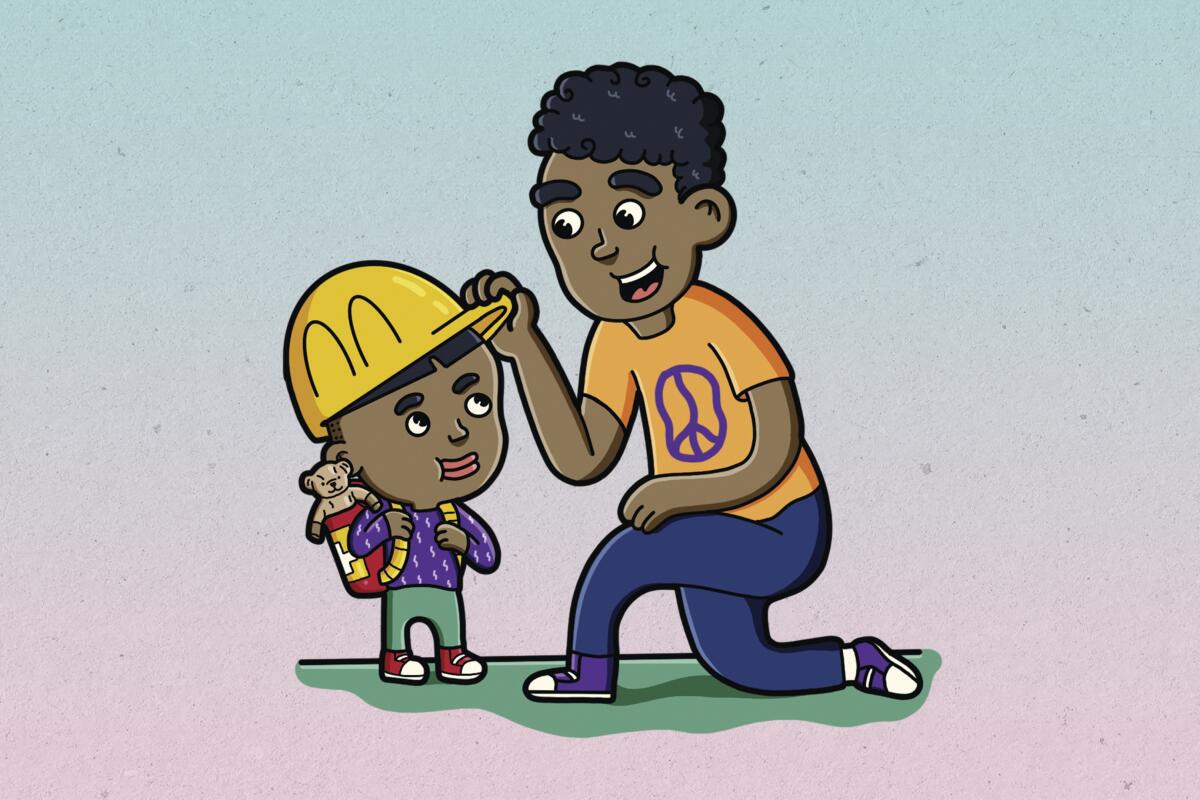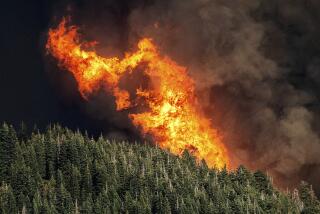How to talk to your kids about earthquakes

- Share via
Parents and guardians might be hesitant to bring up something scary like an earthquake, especially with younger children, said Laura Montoya, owner of the Dandelion School in Brentwood. But, she said, having those conversations is important.
If kids have an understanding of what’s going on, “that really makes a difference on how a disaster might affect them in the short and the long term, and their ability to recover,” said Sarah Thompson, director of U.S. Emergencies for Save the Children.
It’s important that the information and preparation are age appropriate.
Too much front-loading may be overwhelming for a young child, whereas sanitizing the situation may frustrate older children, Montoya said.
Here’s a look at how to prepare your children for an earthquake, whether it’s teaching them earthquake science with Jell-O or making sure their comfort items are in their emergency supply pack.
Before an earthquake
Make sure their rooms are secured: Baby proofing doesn’t necessarily equal earthquake proofing, Montoya said. Kids’ rooms should be free of any falling hazards. Wall art and mobiles that you found on Pinterest may be cute but could present a danger to your infant.
Learn your school’s or caregiver’s disaster plan: Make sure anyone who is taking care of your child has an emergency plan, Thompson said, because in the event of an earthquake you might not be able to get to your kid right away.
Montoya said she goes over her emergency plan with parents at the beginning of each year, something that should be the standard for any place taking care of your children. For parents of younger kids in daycare, Thompson suggested keeping note of how many people are on staff and how many strollers or wheeled playpens the location has, so if the need to evacuate arises, they can do so successfully.
Emergency kits: Each member of the household should have an emergency supply pack on hand. Be sure to include kid-friendly food and snacks, diapers, formula, children’s medicine and comfort items.
Montoya suggested keeping low-tech toys such as board games at home in case the power goes out. She also said dolls and art supplies can act as therapeutic outlets for children, allowing them to express their emotions through creation.
Talking to your kids: Earthquakes can be scary for people of any age, but Montoya encouraged teaching children as young as 4 or 5 that earthquakes are natural.
“They get to that questioning phase, and they’re really curious about why earthquakes happen,” she said, “then you can actually teach them science about it.”
Practice your family’s plan at home: Encourage children to be part of the process of choosing a safe space. This can help kids to remember that they need to get to that spot during an actual earthquake. Older kids can be assigned tasks. Montoya said that as she was growing up each of her siblings had a role for when an earthquake occurred. Her older siblings were responsible for turning off the gas valve and assessing the home for damage, while she was charged with taking care of her younger brother.
People are much more important than kits. People will help each other when the power is out or they are thirsty. And people will help a community rebuild and keep Southern California a place we all want to live after a major quake.
During an earthquake
Although preparation is key, what you do during an earthquake is also important, because your children are watching you, and they’ll react based on how you behave. Narrating what’s going on and reassuring them that they’re safe, in a calm and soothing tone, can help your child make it through the earthquake OK, Thompson said. Everyone should learn how to drop, cover and hold on when they feel the shaking.
After the earthquake
After an earthquake, how you choose to respond can greatly affect your child’s perception of the event.
Listen to your kids: Encouraging children to express their emotions through words, art or what Montoya calls “therapy play” can be beneficial in their ability to process what’s just happened.
Be honest with your kids: Expressing your own humility and sharing with your children the fears and anxiety you experienced during the earthquake is also a way to help validate their feelings, she said. “We’re not putting words in their mouths, but we are modeling that we are human,” Montoya said, “and we are modeling that we are not completely perfect adults who do not get scared.”
Let them be a part of recovery: Allowing children to help clean up after a large earthquake can help them “gain understanding and ownership of what’s going on,” Thompson said. “It helps them contribute, it helps them move on, and helps build their overall resilience knowing that they got through this and they can get through similar instances in the future.”
Be patient if it takes your kids a while to get back to normal: Even with the best preparation, each child is going to be affected differently, Thompson said. Regressive behaviors — such as renewed bed wetting and increased separation anxiety — are common signs that young children are experiencing emotional stress. She encourages parents who notice these kinds of behaviors to seek help if they continue or worsen over time.
More to Read
Get earthquake-ready in six weeks
From building a kit to buying insurance, our Unshaken newsletter course will help you prepare.
You may occasionally receive promotional content from the Los Angeles Times.












